The BentoBox 25
How Oyster Oyster Makes Sustainability Chic
May 14, 2024
No one is having more fun right now than Chef Rob Rubba’s zero-waste restaurant.
More than most restaurants, Washington, D.C.’s Oyster Oyster is a personal statement. Long before the Michelin star or the Beard award, the restaurant was a message that Chef Rob Rubba wanted to send to the world: that sustainability was the most exciting thing happening in food.
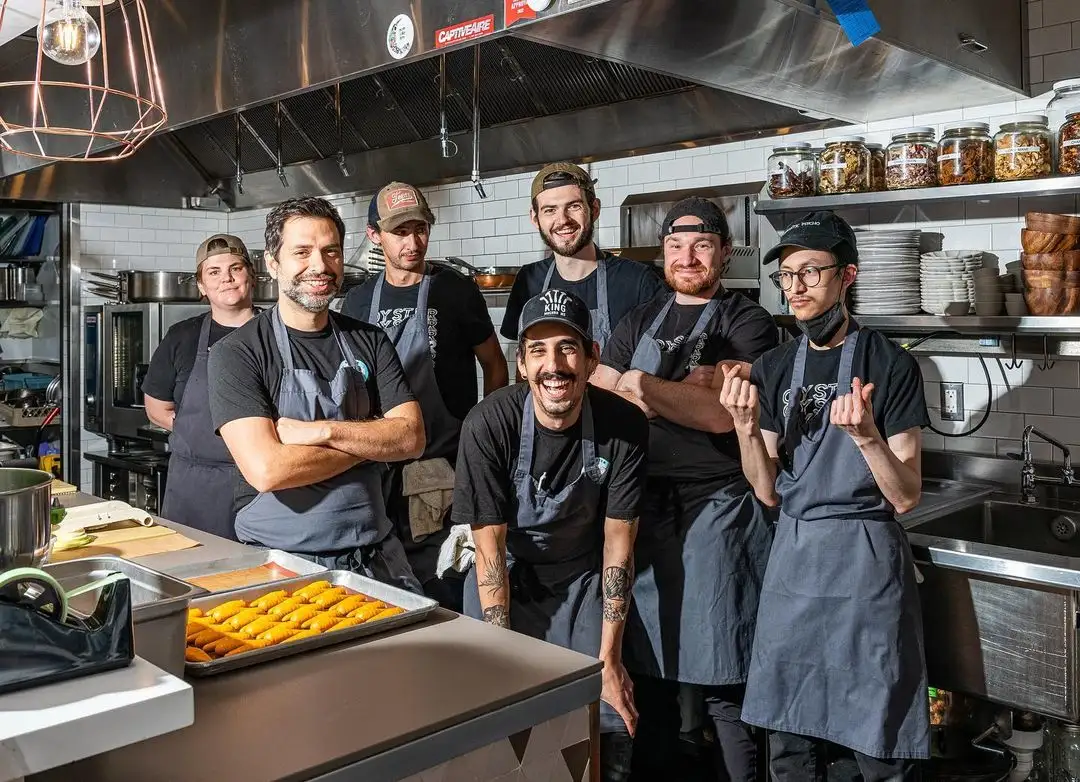
Chef Rubba (second from left) with his kitchen staff. Via Instagram
The plant-based restaurant’s story began at Chef Rubba’s previous restaurant, an upscale Asian concept in D.C. “We had these sticky, crunchy pork ribs,” Rubba told BentoBox. “They were ridiculous. Very labor-intensive. And of course, every table ordered them.
“One day I started doing the math. I’m like… that’s a lot of pigs. You know? That’s scary.”
What troubled Rubba wasn’t just that his restaurant was selling wasteful food. It was that every chef in every city was doing the same. The whole culinary industry was overtaxing the same artificial, industrial food systems. It was one of those things that, once seen, cannot be unseen.
Rubba decided then and there to become a vegetarian. He started thinking restlessly about sustainability in restaurants. Could it be done? What would a sustainable food business even look like?
Rubba left the restaurant and considered changing industries altogether. He resolved that if he were to start a new restaurant, it would not only serve the vegetarian/vegan food he was making for himself, but would focus on practicing true sustainability. That would mean procuring seasonal ingredients from local farms and letting availability dictate what the restaurant served.
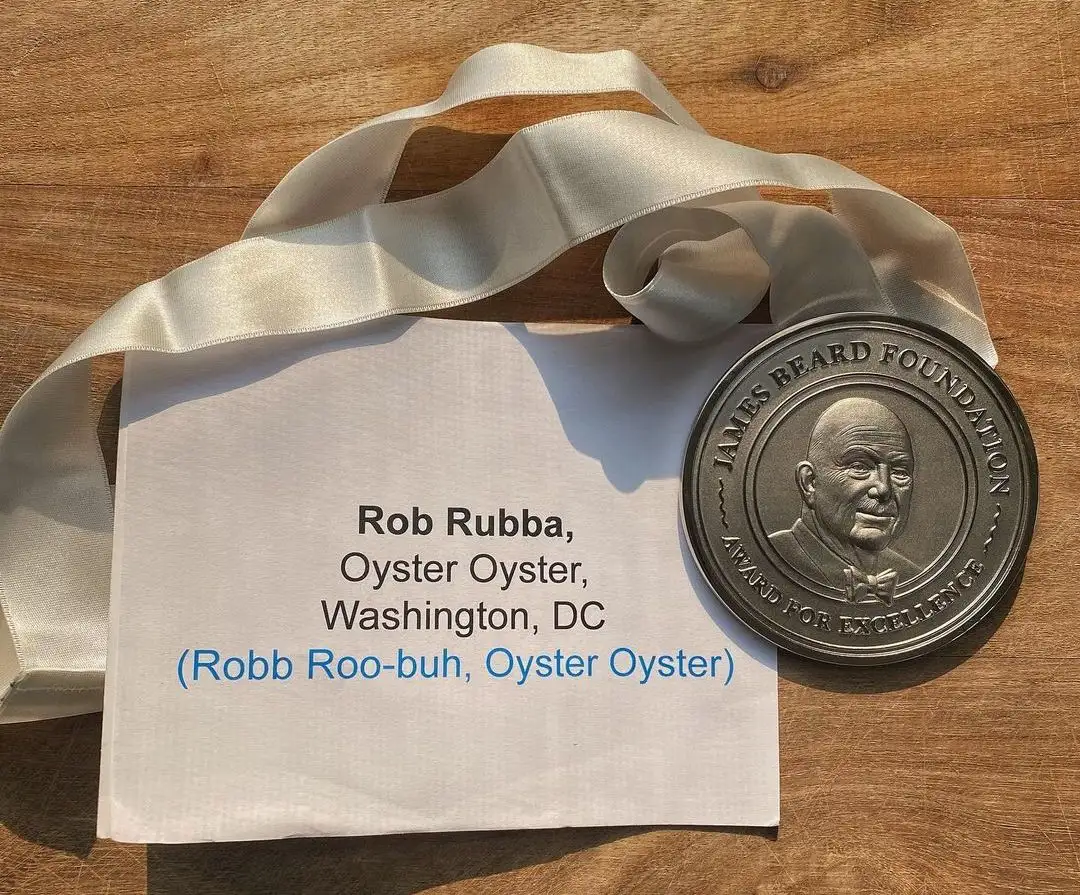
“For me, this is a win for our team and for sustainability. The notion of a vegetarian chef being named the outstanding chef is incredible; it shows the types of progress we are all working for are being recognized.” Via Rob Rubba’s Instagram
Out of that vision for sustainable, plant-based food came Oyster Oyster. Situated on a pristine street in a newly developed part of town, the restaurant space feels clean, modern, fresh — like you’re stepping into Rubba’s laboratory. You won’t see a menu before you eat; the choices are the pescatarian, vegetarian, or vegan tasting menu. Once the service begins, you are in Chef Rubba’s hands.
“When you see a menu ahead of time at tasting menu restaurants, you have this countdown clock in your head,” Rubba explains. That sense of anticipation works against a service that includes wildly experimental plant dishes.
“A lot of people have preconceived notions of vegetables, when really, you may have never had something cooked this way before,” he says. “So instead, we just surprise you with it. And hopefully change your mind about it.”
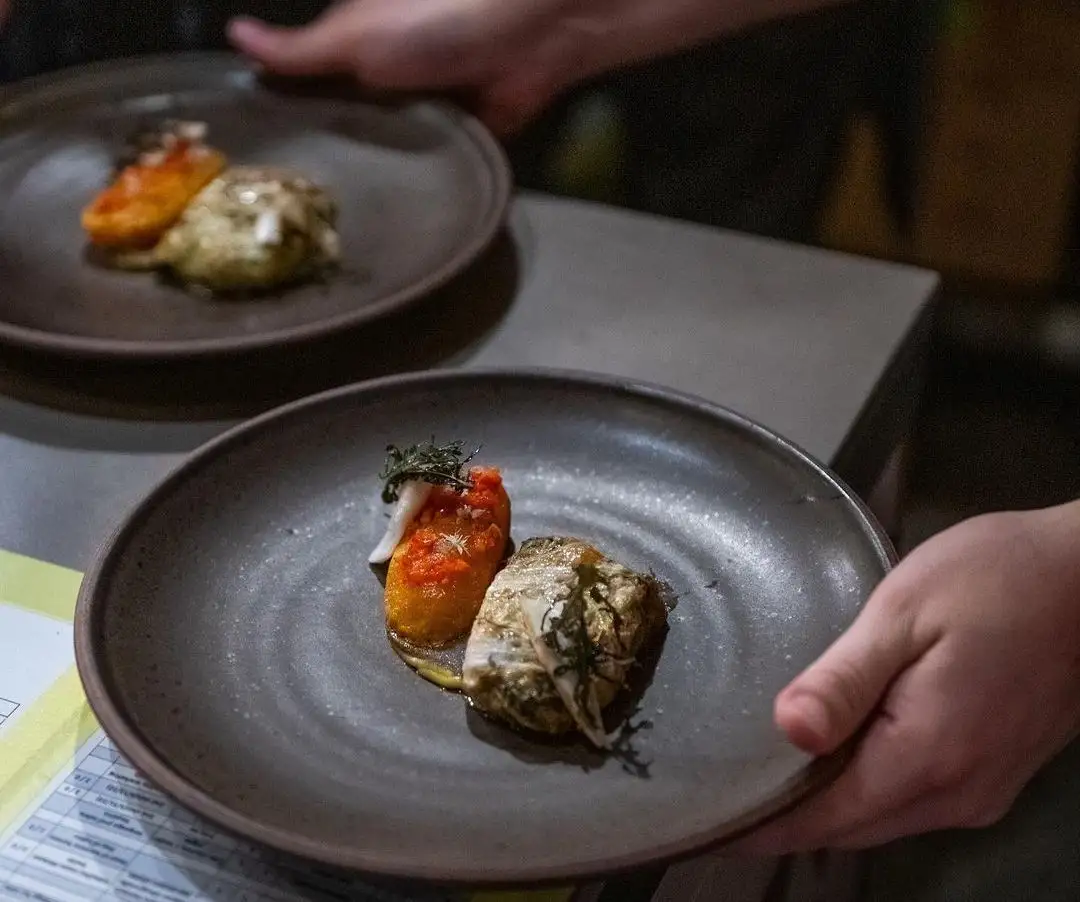
Via Instagram
Perhaps the biggest influence of Oyster Oyster on the larger food world is to prove that sustainability can have pure joy at its heart. Too often, sustainability in restaurants is talked about in a sententious, dour way; it feels like a lecture or a boast more than a springboard for creativity.
Yet Chef Rubba delights in working with food that is always seasonal and always local. He champions a kind of sustainability that is about, more than anything, adapting to what’s available. It requires him to constantly reinvent what’s on offer. He requires his chefs to think the same way.
What kitchen could be more fun than that?
“Flexibility is one of our core values,” Rubba says. “If we have rigid requirements, we’re not really working with what’s being grown collectively and seasonally. We would bend and twist and start purchasing things from outside.” Instead, Oyster Oyster’s talented team takes every new development as a challenge — whether it’s a diner’s food allergy or a shortage of anticipated produce.
“So like, we just had two weeks of really gray, cold weather,” Rubba explained when we spoke in April. “We were expecting to be on a faster track for peas. So our plans to start serving that in the next week are kind of shot. So we just go back to the drawing board. It’s just about staying flexible.”
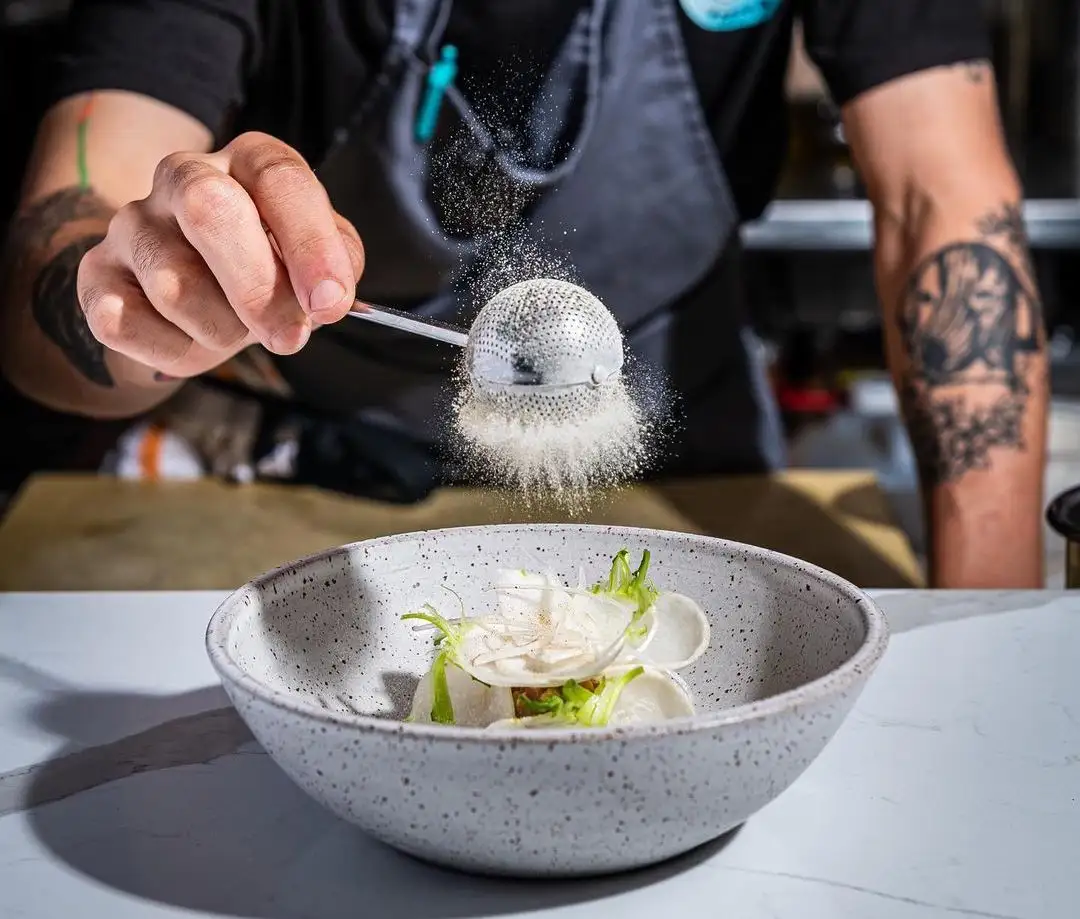
Photo by Rey Lopez. Via Instagram
The radical creativity is working. In 2023, Rubba won the James Beard Award for Outstanding Chef. An avalanche of media attention followed, much of which focused on the restaurant’s commitment to healthy food and food systems. But spend a bit of time with Chef Rubba, and it’s clear that he’s anything but ascetic ecological scold. To the contrary, he is a chef having the time of his life.
“We have a little sign in the kitchen that says, ‘Fuck around and find out,’” Rubba says. “To us, that idea means, let’s take chances. Let’s find interesting things through our failures. You know, we look at an ingredient and say, what flavors can we bring out? How can we make this exciting? It’s definitely a creative process.”
The key to Oyster Oyster’s success, then, isn’t found in any of the catastrophizing you can read about the collapse of our ecologically-unfriendly industrial food systems. It’s found, rather, in a line written by science journalist Steven Johnson: “You will find the future wherever people are having the most fun.”
In Washington, D.C., the future has arrived.
Follow Oyster Oyster on Instagram @oysteroysterdc, and check out the full list of The BentoBox 25.
Recommended

The BentoBox 25
How Blood Bros. BBQ Uplift Houston’s AAPI Community
May 14, 2024
Two Houston trailblazers use social media to help others through a challenging time.
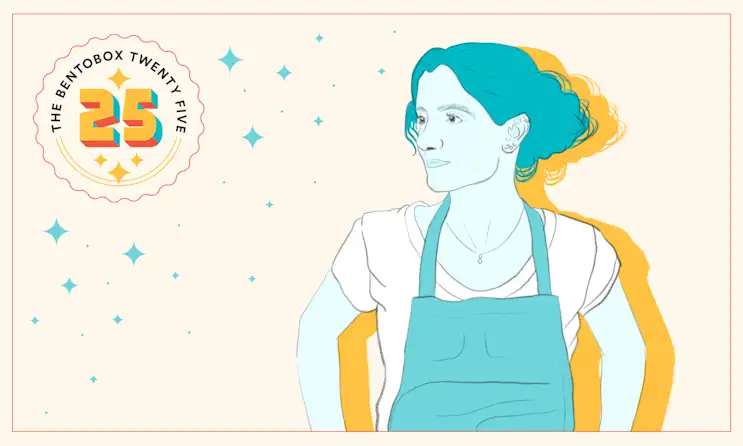
The BentoBox 25
Supporting Women in Hospitality with Chef Elena Reygadas
May 14, 2024
Beyond shaping the city’s food scene at restaurants like Rosetta, the CDMX native has been an outspoken advocate for women pursuing culinary careers.

The BentoBox 25
Sarah O’Brien Is Creating The Community She’s Proud to Live in
May 14, 2024
Little Tart Bakeshop owner Sarah O’Brien thinks investing in the Atlanta community is equally as important as delicious baked goods.


